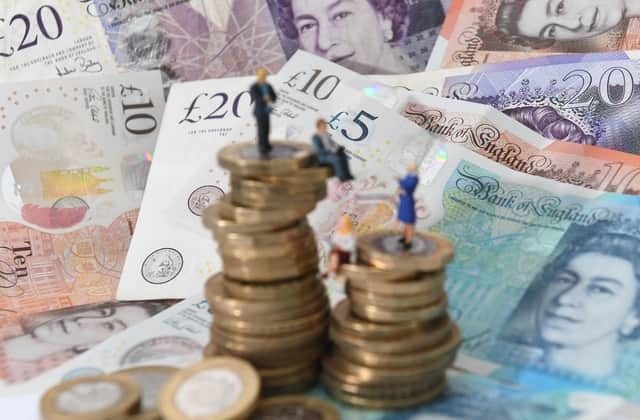Cost-of-living crisis: Three quarters of Scots fear crisis will get worse – poll


A study by Ipsos UK of 899 people from Scotland for management consultancy firm Deloitte, and think-tank Reform, sought to assess attitudes to Government, including priorities for the future and people’s concerns.
Deputy First Minister and acting finance secretary John Swinney announced last week plans for a further £615 million in cuts, taking the total this year to £1.2 billion in response to rising inflation.
Advertisement
Hide AdAdvertisement
Hide AdBut the crisis has also hit households, with increasing costs to goods and soaring energy and fuel prices paired with rising interest rates. In the State of the State report, released on Monday, some 75 per cent of Scottish respondents said they believe the cost-of-living crisis will get worse over coming years, with 84 per cent saying it should be a top priority for government.
According to 58 per cent of respondents, NHS waiting lists would also get worse, alongside 57 per cent who said the same about the availability of affordable housing.
Other top priorities identified were tackling the NHS backlog, which was mentioned by 76 per cent of people and climate change, which was cited by 47 per cent of respondents.
The survey also turned up areas of divergence between Scotland and the rest of the UK, particularly on taxation.
Some 35 per cent of respondents said they were in favour of higher public spending, even if it meant an increase to taxes, while 33 per cent said they were against such a move and 15 per cent said they would like spending to stay at the same level.
This is compared to the UK average of 29 per cent in favour of higher spending.
Last week, Mr Swinney said decisions on taxation would be laid out in next month’s draft budget and has repeatedly refused to be drawn on what changes could be made.
It comes after former prime minister Liz Truss attempted to slash taxes during her ill-fated time in Downing Street, a move that saw the pound spiral against the dollar and caused the Bank of England to step in to secure the UK economy.
Advertisement
Hide AdAdvertisement
Hide AdA separate survey conducted by marketing firm The Union, also released on Monday, found the level of anger around the cost-of-living crisis on the rise.
Rising levels of frustration among the population in Scotland were evident in the report, with a strong sense of “looking for someone to blame”, with 69 per cent reporting an increase in household anger and 80 per cent saying they are becoming increasingly frustrated with the situation.
Nearly three-quarters (72 per cent) of those surveyed blame the UK Government for the current crisis, with almost four in ten blaming the Liz Truss-Kwasi Kwarteng mini-budget as the main cause.
Over a quarter (26 per cent) said their family relationships had suffered as a result of the strain the crisis is creating.
Rising costs have had an impact on people’s mental health, with 75 per cent reporting an increase in stress as a result of the economic crisis and a further 35 per cent saying they are having difficulty sleeping.
Comments
Want to join the conversation? Please or to comment on this article.